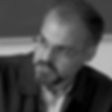Workshop: “Time Revolution: Contemporary Thought and the Struggle Against Scientific Necessity”
- Einstein Center Chronoi
- Jul 10
- 7 min read
July 17––18, 2025
Organized by Amir Engel
The scientific notion of time, which developed gradually since Newton’s discoveries, construes time as uniform, constant, and unidirectional and has proven remarkably successful. It is the key to ocean navigation, rail transportation, and electronic technologies. Furthermore, it seems to have solved a fundamental human problem. It is possible to set appointments months even years in advance. And yet, at same time, this conception poses a monumental threat human consciousness for it clashes with the most basic tenet of human self-perception, namely its assumption of freedom.
The workshop explores the ongoing struggle between the modern-scientific notion of time and other competing ideas on time rooted in religious, artistic, scientific, and social constructs. The scientific notion of time developed gradually since Newton’s discoveries and construes time as uniform, constant, and unidirectional. This notion has proven remarkably successful. Synchronizing time and space opened the path to ocean navigation, rail transportation, and electronic technologies. And yet, this mechanized and unidirectional synchronized conception contradicts basic tenets of human self-perception, including its assumption of freedom.
To explore this struggle, we intend to look at the debates about synchronized time from a historical and conceptual perspective. How did modern philosophy, literature and art, and the natural and social sciences react to the synchronized concept of time? How did religious ideologies and texts contribute to the modern debate about time? What part did this debate play in modern and postmodern discussions about, for example, colonialism and gender? Simultaneously, the workshop offers a platform for debating time in the present. What, for example, is the time of postwar democracies, and what are its alternatives? And, what is the time of contemporary media?
SPEAKERS

Jimena Canales is an author and historian of science. Her books include Bedeviled: A Shadow History of Demons in Science, The Physicist and the Philosopher: Einstein, Bergson, and the Debate That Changed Our Understanding of Time, and A Tenth of a Second: A History. Her essays have been published in The New Yorker, The Atlantic, Artforum, Aperture, Nautilus and WIRED and in numerous scholarly journals. She was previously Assistant and Associate Professor at Harvard University and the Thomas M. Siebel professor for the History of Science at the University of Illinois.

Amir Engel is a Professor at the German department at the Hebrew University of Jerusalem and currently also a visiting professor at the Faculty of Theology at Humboldt University in Berlin. He studied philosophy, literature, and culture studies at Hebrew University and completed his Ph.D. in the German studies department at Stanford University. He specializes in the nineteenth and twentieth centuries' German, Jewish, and Christian cultural and intellectual history. His scholarship concerns the relation between aesthetics, modern Western spirituality, and politics. His first book Gershom Scholem: an Intellectual Biography came out in 2017. He also published essays about Hannah Arendt, Paul Celan, Martin Buber, Jacob Taubes, Salomon Maimon, and others. His second book manuscript, temporarily titled The Politics of Spirituality: Jewish Mysticism, Christian Spirit, and the German Nation will be published next year.

Anoush Ganjipour is a researcher at the CNRS. He is a specialist in Islamic thought and comparative philosophy. Among his recent publications are Palestine, Israël et nous: une discussion orientale-occidentale (co-authored with Jean-Claude Milner, Cerf, forthcoming 2025), L’ambivalence politique de l’islam : pasteur ou Léviathan ? (Seuil, 2021). He is also the editor of Monothéismes et politique : modernité, sécularisation, émancipation (CNRS Éditions, 2022), Politique de l’exil. Giorgio Agamben et l’usage de la métaphysique (Éditions Lignes, 2019).

Eva Horn is a professor of modern German literature at the German Department of the University of Vienna. Her research focuses on politics, secrecy, and modern fiction, disaster imagination, the cultural history of climate, and the Anthropocene. Together with Hannes Bergthaller, she published The Anthropocene - Key Issues for the Humanities (Routledge, 2020). Her most recent publication is a perceptual history of climate: Klima. Eine Wahrnehmungsgeschichte (Fischer, 2024).

Sami Khatib is a professor of political and social aesthetics at the Karlsruhe University of Arts and Design. Most recently, he researched critical theory from the Global South at the German Orient Institute in Beirut. Since 2006, he has taught media philosophy, aesthetics, and art theory at several universities, including the American University of Beirut, the American University in Cairo, Leuphana University Lüneburg, the Academy of Fine Arts Vienna, and the Free University of Berlin. His research interests include critical theory, aesthetic theory, and continental philosophy.

Elad Lapidot is Professor for Jewish Thought at the University of Lille. Holding a PhD in philosophy from the Paris Sorbonne university, he has taught philosophy, Jewish thought and Talmud at many universities, such as the University of Bern, Switzerland, and the Humboldt Universität and Freie Univeristät in Berlin. His work is guided by questions concerning the relation between knowledge and politics. Among his publications: State of Others. Levinas and Decolonial Israel (Indiana University Press, forthcoming 2025), Politics of Not Speaking (SUNY Press, forthcoming 2025), Jews Out of the Question. A Critique of Anti-Anti-Semitism (SUNY Press, 2020), Hebrew translation with introduction and commentary (with R. Bar) of Hegel’s Phänomenologie des Geistes, Vol. 1 (Resling, 2020), Heidegger and Jewish Thought. Difficult Others, edited with M. Brumlik (Rowman & Littlefield, 2018), and Etre sans mot dire : La logiqe de ‘Sein und Zeit’ (Zeta Books, 2010).

Nitzan Lebovic is a professor of history and the Apter Chair of Holocaust Studies and Ethical Values at Lehigh University. Nitzan is the author of The Philosophy of Life and Death: Ludwig Klages and the Rise of a Nazi Biopolitics (2013), Zionism and Melancholy: The short Life of Israel Zarchi (2019), and Homo Temporalis: Martin Buber, Walter Benjamin, Hannah Arendt, and Paul Celan about Time (2025). Nitzan is the co-editor of Catastrophes: The History and Theory of an Operative Concept (2014) and Nihilism and the State of Israel: New Critical Perspectives (2014), and edited special issues about political theology, nihilism, and biopolitics. His new project is titled “The history of complicity, 1945- Present.”

Jesse Matz is John Crowe Ransom Professor of English at Kenyon College. His work includes Modernist Time Ecology (Hopkins, 2019), Lasting Impressions: the Legacies of Impressionism in Contemporary Culture (Columbia, 2016), and a number of articles on narrative temporality, modernist culture, and related subjects. His current project, "Montage Diversity," studies montage formats for the representation of diversity from Whitman to the present.

Shira Miron is a PhD candidate at the Department of Germanic Languages and Literatures at Yale University. Her research explores aesthetics as a mode of investigation for human experience and social formation and studies the particularities of different artforms alongside their conceptual and practical cross-pollination. She pursues theoretical questions as they relate to history and culture and vice versa. Her dissertation project, Composition and Community: The Extra-Musical Imagination of Polyphony 1800/1900/1950, explores the advent of western polyphony as a modern aesthetic, communicative, and ethical phenomenon that extends beyond the field of music. Shira published on the relationship between music and literature, German-Jewish literature and culture, visual studies, theories of dialogue and communication, and on a wide range of authors including Novalis, Adorno, Kleist, and Gertrud Kolmar. Shira holds B.Mus. and M.Mus. degrees in piano performance from the Jerusalem Academy of Music and Dance and studied German literature at the Hebrew University in Jerusalem and at the Freie Universität Berlin. Currently, she is a DAAD research fellow at the Leibniz Center for Literary and Cultural Research (ZfL) in Berlin.

Caroline Sauter is professor of Comparative Literature at Goethe University, Frankfurt. Her work focuses on the interconnection of literature and theology, particularly in Jewish thought, on European Jewish literature and theory, as well as on translation theory and literary theory. She is the author of a monograph on Walter Benjamin’s translation philosophy (Die virtuelle Interlinearversion) and numerous scholarly articles, the co-editor of several books and collected volumes, as well as the co-translator (together with Esther von der Osten) of Jacques Derrida’s “What is a ‘relevant’ translation?”.

Willem Styfhals is an assistant professor at the Institute of Philosophy, KU Leuven. He is the author of No Spiritual Investment in the World: Gnosticism in Postwar German Philosophy (Cornell UP, 2019) and Apologie van het Schrift (Grafische Cel, 2022).

Jayne Svenungsson is Professor of Systematic Theology at Lund University in Sweden. Currently director of the multidisciplinary research program At the End of the World: A Transdisciplinary Approach to the Apocalyptic Imaginary in the Past and Present, her research focuses on political theology and philosophy of history. Her latest monograph is Divining History: Prophetism, Messianism and the Development of the Spirit (Berghahn, 2016). Co-edited volumes include Jewish Thought, Utopia and Revolution (Rodopi, 2014), Monument and Memory (LIT, 2015), Heidegger’s Black Notebooks and the Future of Theology (Palgrave, 2017) and The Ethos of History: Time and Responsibility (Berghahn, 2018).
PROGRAM
THURSDAY, JULY 17 | FRIDAY, JULY 18
09:30–10:15 | WORKSHOP OPENING
Why Now? The Problem of Time and the Present Moment
Opening Remarks on Behalf of the EC-Chronoi
Eva Cancik-Kirschbaum (FU, EC-C)
10:15–10:30 | COFFEE BREAK
10:30–12:30 | SESSION 1 (CHAIR: WILLEM STYFHALS)
Haunted Writing: Times of Translation, Works of Mourning, Labors of Love
Impatient Patience: Rethinking Revolutionary Temporality with Benjamin, Derrida, and Bensaïd
12:30–13:30 | LUNCH
13:30–15:00 | SESSION 2 (CHAIR: AMIR ENGEL)
Remarks on Behalf of the BBAW and EC-Chronoi
Christoph Markschies (BBAW, EC-C)
Einstein, Bergson, and the First Law of Time
15:00–15:30 | COFFEE BREAK
15:30–17:30 | SESSION 3 (CHAIR: ELAD LAPIDOT)
Photographic Time: Death, Mechanism, and Messianism
The History of Being and Human Temporality: An Islamic Perspective
18:00–19:30 | EVENING EVENT––BOOK PRESENTATION (CHAIR: AMIR ENGEL)
Silent Time: The Politics of Not Speaking
Response
20:00 | PARTICIPANTS DINNER
FRIDAY, JULY 18
10:00–12:00 | SESSION 4 (CHAIR: EVA HORN)
On Style and Simultaneity
The Temporalities of Montage
12:00–13:00 | LUNCH
13:00–15:00 | SESSION 5 (CHAIR: CAROLINE SAUTER)
Complicated Time: Complicity in the Age of the Anthropocene
Climate’s Time: From Seasons to the Anthropocene
15:15–16:00 | CONCLUDING REMARKS
18:00 | PARTICIPANTS DINNER


